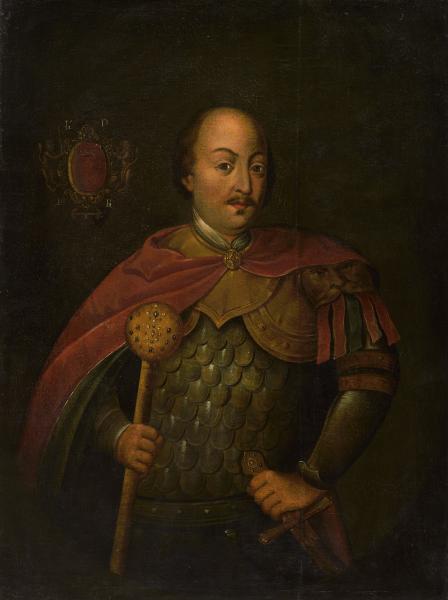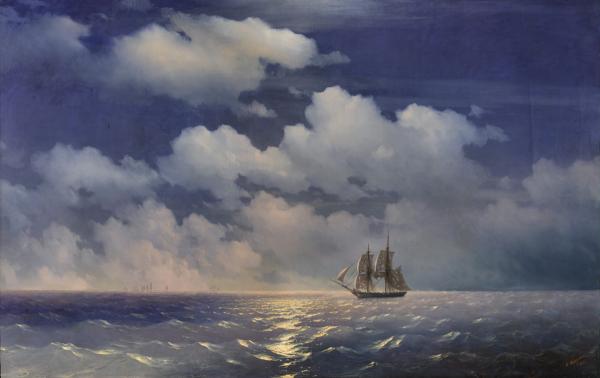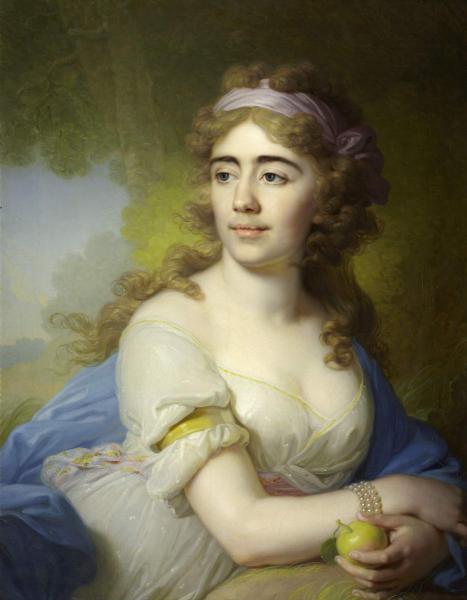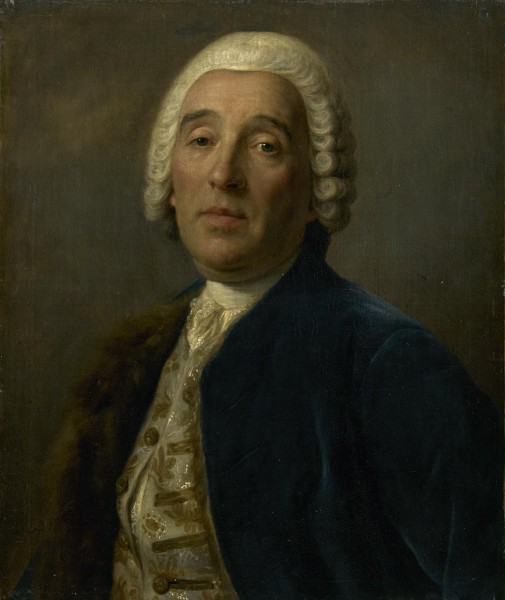The artist is unknown

Boris Petrovich Sheremetev (1652–1719) – statesman, commander, diplomat. Participated in the first Azov campaign. In 1682 – granted in the boyar. The closest associate of Peter the Great; Member of all the most important battles of the Northern War (Derpt, Narva, Poltava, Riga). From 1701-Field Marshal. First Russian Count (1706). Peter I called Sheremetev his thyulent and highly appreciated for disinterestedness.
Peter I. Time and environment. SPb, 2015. With. 126.
Dated according to technological research. Identified b. AND. Kosolapov. On the left in the upper part of the portrait – modern painting by the coat of arms of the Sheremetev clan (Harvesteeper. With. 7–9). Around the coat of arms are letters: “b”, “n”, “w”, “b” (Boris Petrovich Sheremetev boyar). In addition, an engraving l was performed from this portrait. Tarasevich, who was opened by Panegyr in Polish, brought by Sheremetev in 1695 on the occasion of his capture of four Turkish fortresses. The author of this Panagirika Petr Terletsky was at court b. P. Sheremeteva. In the last quarter of the XIX century, the full copy of Panegirik was stored in the great -great -grandmother of Field Marshal Count from. D. Sheremeteva, according to which a picturesque announcement, which served as an original for engraving, was in their family Belgorod estate Borisovka. It is possible that it is he who is now stored in the timing (Selishchev. With. 83–103; Sheremetev. With. 200). D. AND. Rovinsky mistakenly considered the engraving l. Tarasevich with an image and. With. Mazepa, believing that “… Sheremetev only in 1697, after traveling abroad came to Peter in a foreign caftan and shaved his mustache and beard” (Dictionary of Russian engravers. Stlb. 984–985). Indeed, b. P. Sheremetev changed into a European dress during his diplomatic mission 1697–1699. However, there is no reason to say that before that he certainly wore a beard. Written in the traditions of the Polish-Ukrainian portrait of the XVII century. B. P. Sheremeteva connected a lot with Ukraine: his father was a Kyiv governor and lived in Kyiv for many years. Some historians believe that he studied at the Kiev Bratsk School. It is not surprising that Field Marshal for life “preserved some special attraction to Kyiv”. For old age, he was going to settle there forever, and in a spiritual testament he asked him to be buried in the Kiev Pechersk Lavra.
N. X. Unknown artist. SPb, 2012. With. 36.


